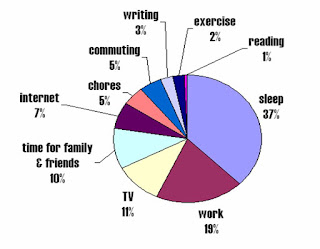Speaking up and standing up for Singapore! (Work AMP blog no. 2)
The AMP participants have really diverse cultural backgrounds and personal characters of course. As an example, some cultures and personalities talk a lot, while others don't. Like, it seems to me that our US friends have a tendency to value speaking up, just because. Say something, even if you don't know it's right. And be OK with getting shot down if it's dumb.
I think you can make the argument that there is value to this, because it creates an environment where wacky ideas and moonshots can be aired. So sure, you risk a surfeit of hot air, but sometimes a jewel pops out. And it is generally true that verbalizing helps you to crystallise ideas better than if they are just marinating and sloshing around in your brain. To be fair, the Americans do have a pretty good track record for innovation.
Whether verbosity and innovation are cause-and-effect is still up for debate. I agree that speaking up and sharing is very very important, and we need to do a much better job of that. But my personal philosophy (rightly or wrongly) remains - if possible, say something only if I'm reasonably confident that it adds value. We should certainly be brave enough to venture something even if there's a risk that it's wrong, but there's seldom any need to regurgitate the banal or expound on the tangential. We're not in a tutorial group, trying to win "class participation" points. I think we should do the same in our office discussions and meetings. Speak up courageously, but not just to score points.
=====
The Singapore story was one of the case studies in the first week, and the professor was gushing in his praise of our little island. It seemed to me that he admired my country more than I did!
By the measure of various different polls, Singapore is in the top 3 list of richest citizens in the world in terms of purchasing power parity, at ~90+k per capita. Things that we take for granted, like our savings rate, trade and budget surpluses, attraction of ridiculous amounts of foreign direct investment, and our Singapore Inc oriented institutions (like MAS!) are amazing not only to the professor, but to all my international classmates too. Most of them can barely believe the statistics.
This is particularly in the light of the fact that, in the words of the professor, we have so little resources, we have to import them all, so little people, we have to bring in immigrants, and so little land, we even have to import sand :D
We’re not without serious flaws, but as the professor said, don’t spend too much time weeping for Singapore just yet. In this regard, it’s a good reminder about two things: (a) to be grateful for what we do have in our island home, gripe a little less, and give a little more, especially to the less fortunate; and (b) to keep working smart to preserve these fragile advantages for those who are to come after us.
I recall my growing up years. Both my parents studied only to secondary school. We didn't live in our own flat. 10 people lived in my grandmother’s flat, and when my cousins came over to play, it became 12. I think I slept on the floor on a mattress till I was about 13, when my parents and I finally moved out to our own flat. The first time I slept on a raised bed, I kept thinking I was going to fall off and hit my head :D
Even then, I never once felt I was lower-income, because I always had enough to eat, and had toys to play. But in my own lifetime I saw my parents get good work opportunities, send me to local University with their CPF money, start a fulfilling career for myself and raise my own family, and now I’m even sitting at a desk in Harvard typing this out! What a privilege.
Even then, I never once felt I was lower-income, because I always had enough to eat, and had toys to play. But in my own lifetime I saw my parents get good work opportunities, send me to local University with their CPF money, start a fulfilling career for myself and raise my own family, and now I’m even sitting at a desk in Harvard typing this out! What a privilege.
By comparison, today, even the poorest Singaporeans have access to rental flats, which they typically don’t have to share with another family. I see these families when I conduct my monthly bread distribution exercises, and while they certainly do have issues which we need to help them with, they have their own homes, they have TVs, fridges and commonly mobile phones. We can do a lot more for those who are left behind. But we have raised the bar a lot in the last couple of decades. I’m thankful!







Comments